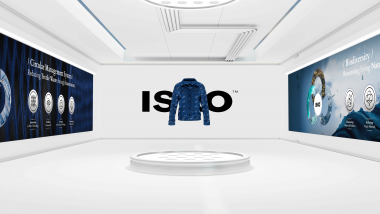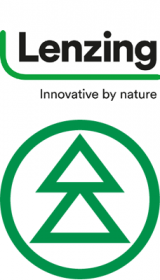ISKO’s at lablaco’s virtual-reality (VR) Circular Fashion Summit 2021
As part of its mission to a fully circular fashion industry, ISKO has joined forces with the CFS by lablaco to show its commitment to this important cause. At Grand Palais Éphémère in Paris on 9-12 December, ISKO engaged with industry leaders from across the world to demonstrate its approach to circularity.
At its virtual gallery, ISKO guided its guests through its Metaverse and discussed its goal to eliminate virgin fibres in its fabrics and how it plans to achieve it.
Guests were able to dress their avatars in their very own ISKO VR denim jacket and ISKO worked with the Institute of Digital Fashion (IoDF) to design this VR art installation, which represents how it is pushing the boundaries of what is possible, making fabrics from textile waste.
ISKO / Menabò Group















